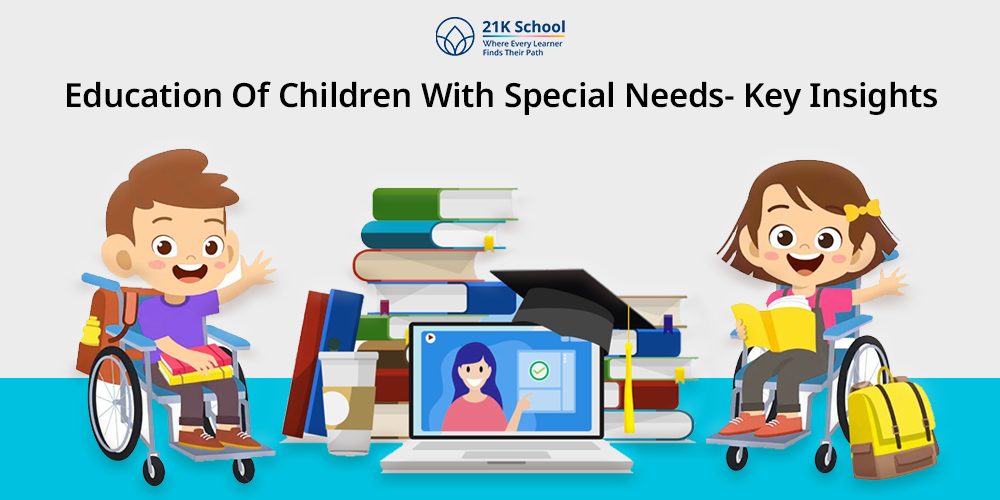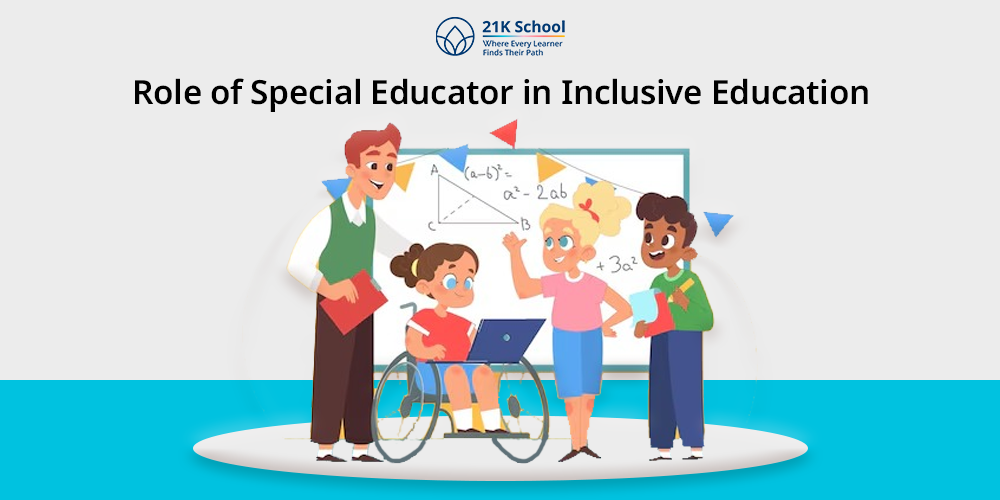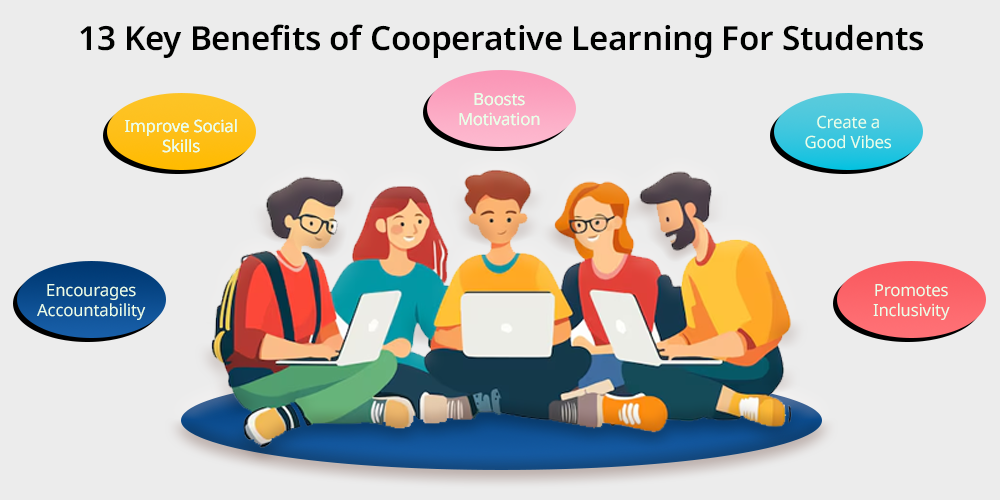
Cooperative learning functions as an instructional method requiring students to function as small collaborative units while working toward collective objectives.
Traditional individual-based learning takes a different direction from cooperative learning which emphasizes group work enabling students to build both relationship skills and teamwork capabilities.
Students develop effective teamwork skills which integrates their specific skills with available information while resolving problems and completing assignments and acquiring new knowledge.
Studies demonstrate academic achievement improvements alongside pivotal life ability growth through this methodology.
Contents
- What is Cooperative Learning?
- Top 13 Benefits of Cooperative Learning
- 1. Improve Social Skills
- 2. Improved Academic Performance
- 3. Fosters Critical Thinking and Problem-Solving
- 4. Boosts Motivation and Engagement
- 5. Create a Good Vibes Learning Environment
- 6. Prepares Students for Future Careers
- 7. Promotes Inclusivity and Diversity
- 8. Encourages Accountability
- 9. Improves Emotional Intelligence
- 10. Develops Conflict Resolution Skills
- 11. Encourages Active Learning
- 12. Strengthens Peer Relationships
- 13. Increases Long-Term Retention
- Conclusion
What is Cooperative Learning?
Cooperative learning is an educational technique in which students engage in small groups to accomplish common goals and accomplish tasks.
It increases teamwork, communication, and shared responsibility, helping learners to work collectively and with one another in order to learn.
The strengths of each member are added to make learning process more interactive and support another.
In cooperative learning, problem solving, critical thinking, creative thinking, and peer to peer teaching are increased and student understanding and retention is enhanced.
Such an approach ensures that the students are taught good skill of working in a team, respect for the diversity and further build good social skill, which can be very useful in real life scenario especially working in a team.
Top 13 Benefits of Cooperative Learning
1. Improve Social Skills
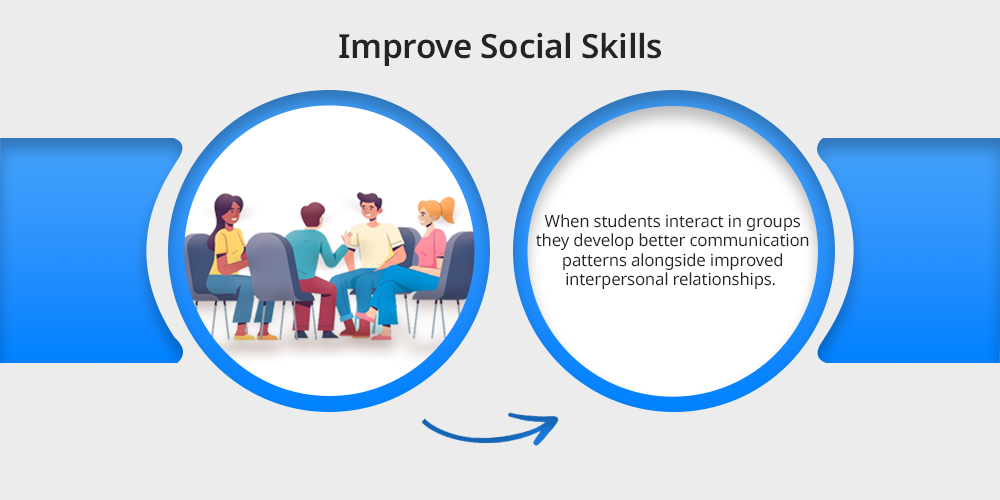
Students with the opportunity to build crucial social competencies which ranks among its most substantial benefits.
When students interact in groups they develop better communication patterns alongside improved interpersonal relationships.
Students learn to listen carefully while they develop social emotional skills for clear idea presentation alongside the practice of showing respect for different opinions.
Students gain confidence in working with others through these group interactions a capacity they need for their personal and professional development.
2. Improved Academic Performance
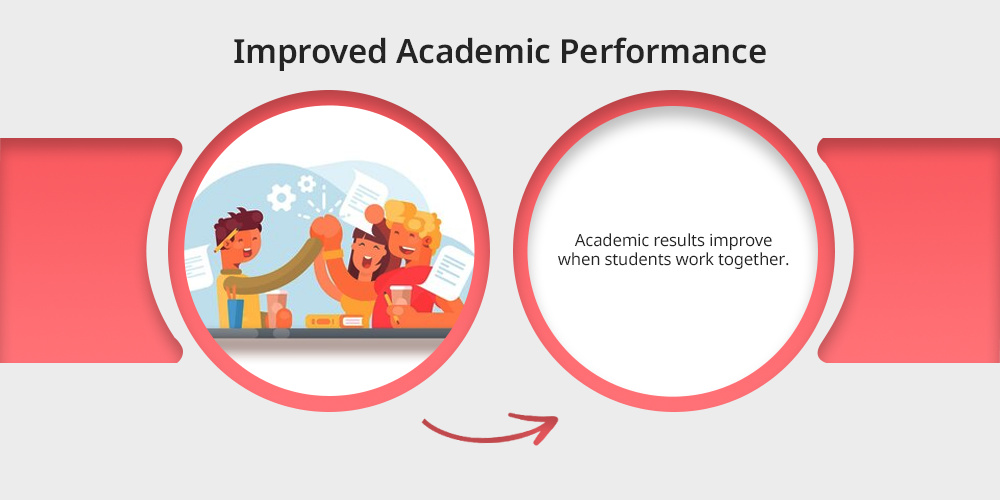
Academic results improve when students work together. Students who work with each other have the opportunity to exchange their knowledge strengths while helping one another improve their weaker areas.
The process of helping fellow students learn materials helps them master material better and allows students to gain understanding from others about content they miss.
Group work enhances teaching lessons while creating meaning along with better understanding that improves memory of learned material.
In cooperative learning groups students receive peer-to-peer feedback instantly so they can quickly detect their errors which leads to better skill development.
3. Fosters Critical Thinking and Problem-Solving
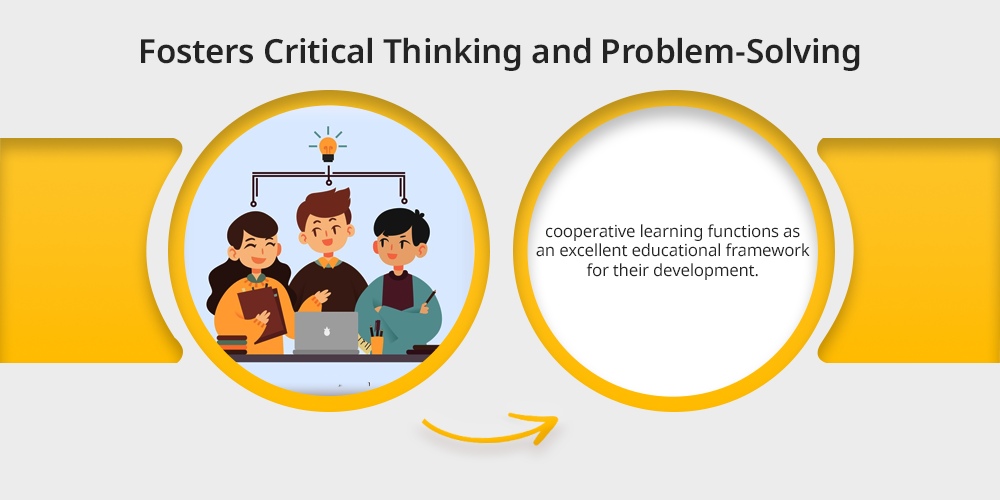
Critical thinking and problem-solving capabilities become essential because cooperative learning functions as an excellent educational framework for their development.
Students who participate in group tasks and challenges must jointly break down problems then share solution ideas until they agree on what to do.
Students work together to produce thinking creatively while evaluating multiple perspectives through this group collaboration process.
Through group participation students learn how to challenge assumptions before reaching informed choices. The acquired skills become automatic responses which enable students to handle genuine challenges effectively.
4. Boosts Motivation and Engagement
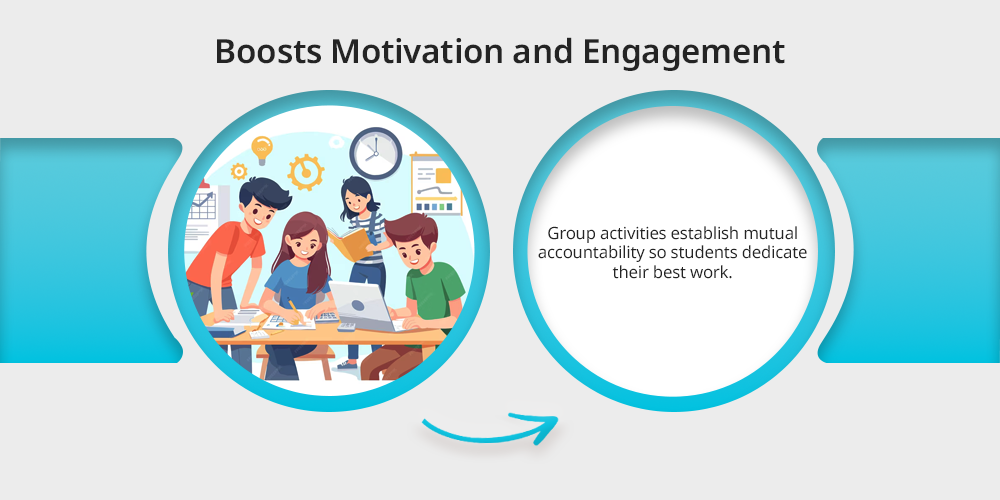
When students collaborate they experience both better enjoyment and improved motivational effect when compared to individual study.
The classroom positive learning environment turns interactive and dynamic through cooperative learning which makes students fully participate in their learning activities.
Group activities establish mutual accountability so students dedicate their best work both individually and on behalf of their team members.
Students tend to show greater engagement in subjects which this form of motivation produces.
5. Create a Good Vibes Learning Environment
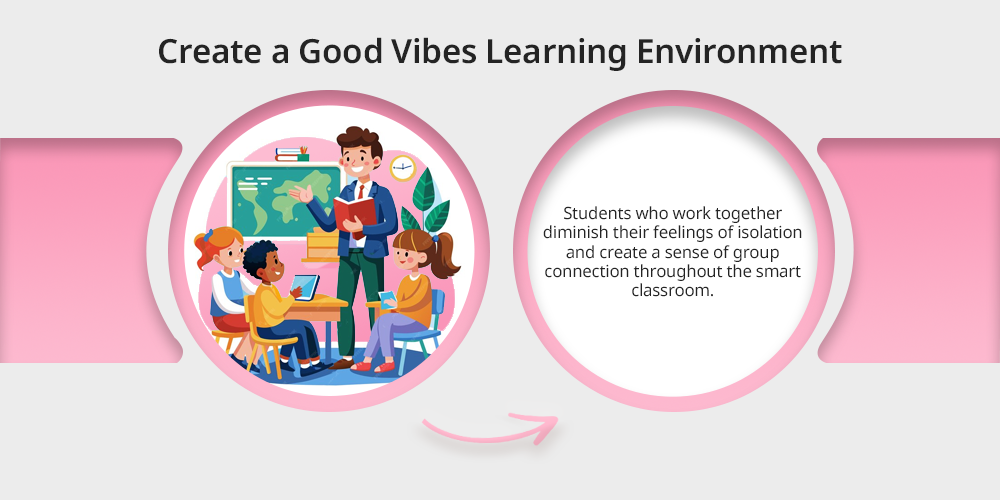
Students unite their personal work to achieve objectives together without engaging in competitive interactions.
Students who work together diminish their feelings of isolation and create a sense of group connection throughout the smart classroom.
Students who experience respectful treatment from their peers take educational opportunities and ask questions and stay fully engaged with classroom responsibilities.
These educational conditions enable students to gain personal benefits while creating benefits that enhance the learning experiences for their entire class.
6. Prepares Students for Future Careers
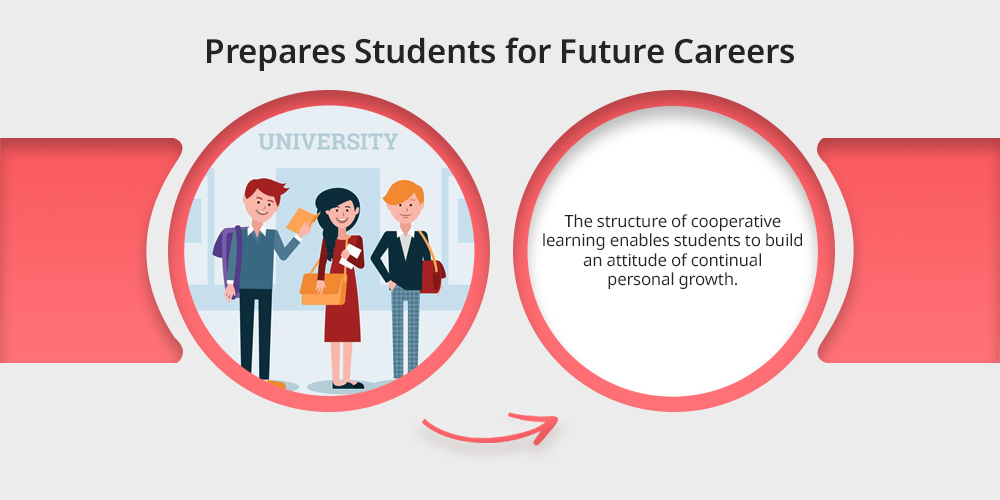
The ability to collaborate stands as an essential competency across all professions so cooperative learning serves as vital preparation for workgroup dynamics in current professional environments.
The exchange of knowledge among team members allows students to learn delegation techniques while solving conflicts.
The structure of cooperative learning enables students to build an attitude of continual personal growth.
Students develop fundamental professional traits by learning how to tackle obstacles while recognizing mistakes as developmental experiences and adjusting their approach to changing team compositions.
7. Promotes Inclusivity and Diversity
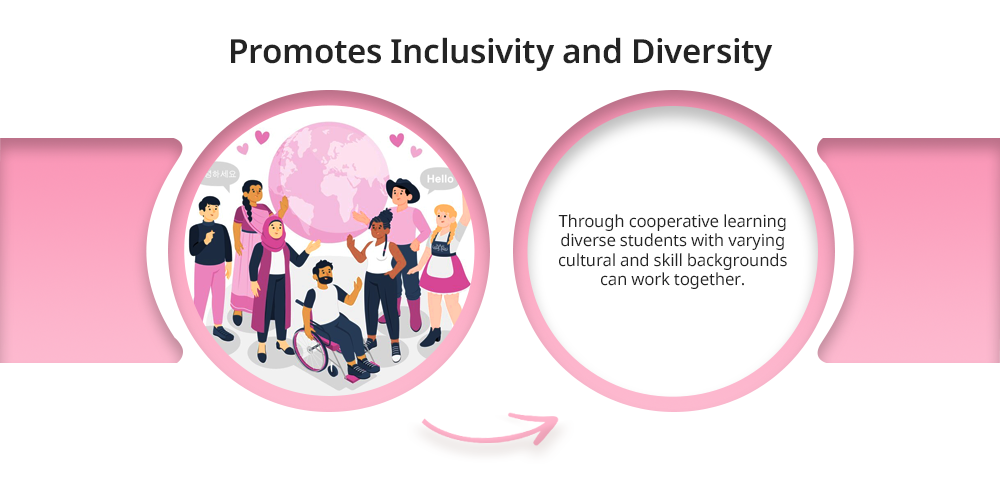
Through cooperative learning diverse students with varying cultural and skill backgrounds can work together. The diverse student makeup creates enriched educational encounters which build an inclusive learning environment.
When students interact with distinct attitudes and thoughts they expand their knowledge base about the world beyond their educational framework.
Acceptance of cultural diversity combined with group learning helps students build both understanding and tolerance for others.
8. Encourages Accountability
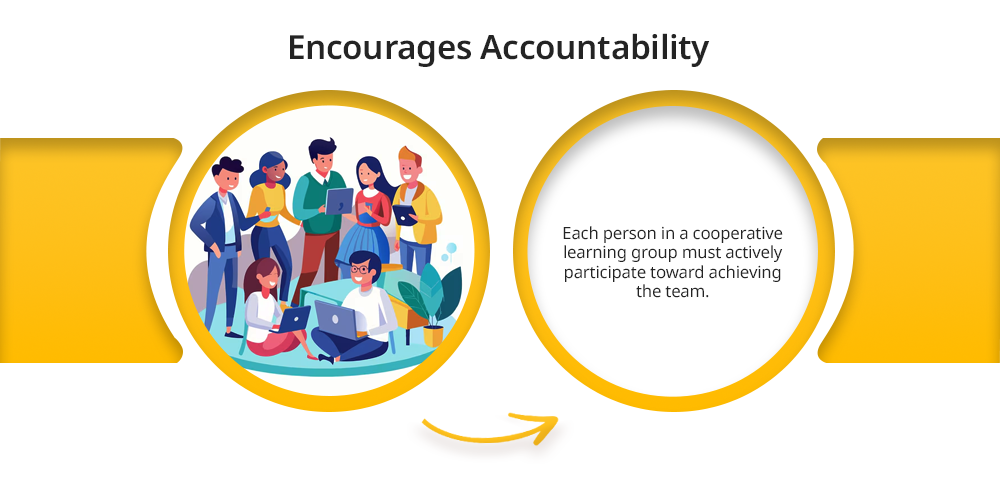
Each person in a cooperative learning group must actively participate toward achieving the team.
When students feel responsible for one another they become more accountable because personal effort creates direct consequences for team success.
Group activities require members to receive particular responsibilities which help each participant actively take part in the work.
When students take responsibility for their work they develop time management and organizational capabilities while learning about task ownership.
9. Improves Emotional Intelligence
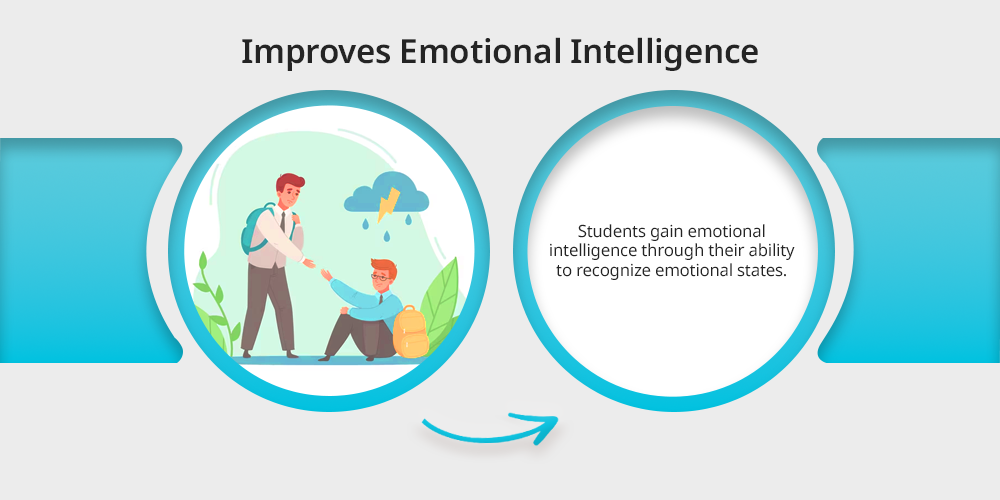
Students gain emotional intelligence through their ability to recognize emotional states and implement emotional control and show understanding of other people’s feelings.
Students naturally develop this skill due to the environment created by cooperative learning activities.
Students learn emotional perception together with emotional self-control while gaining understanding of appropriate emotional responses toward others through group communications.
Students who develop emotional awareness through group activities demonstrate better capacity for building solid relationships together with conflict resolution strengths and team collaboration skills.
Also Read: Benefits of Social Emotional Learning
10. Develops Conflict Resolution Skills
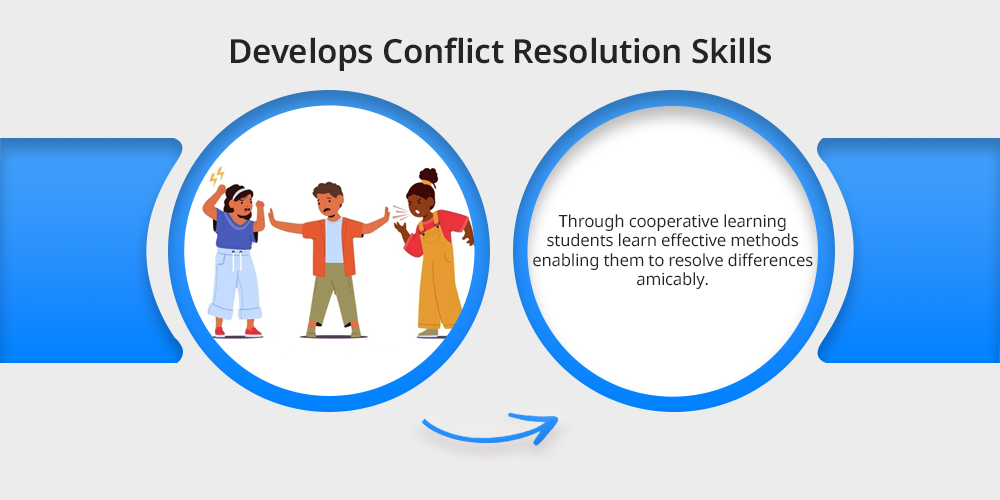
The natural occurrence of conflicts when working with groups shapes important learning experiences.
Through cooperative learning students learn effective methods enabling them to resolve differences amicably.
Students learn the necessary skills for open communication that incorporate listening to multiple viewpoints before arriving at common solutions.
Building superior skills at conflict resolution remains vital for both personal relationships and professional settings.
Students who learn effective conflict management techniques within supportive settings develop stronger skills for encountering future difficulties.
11. Encourages Active Learning
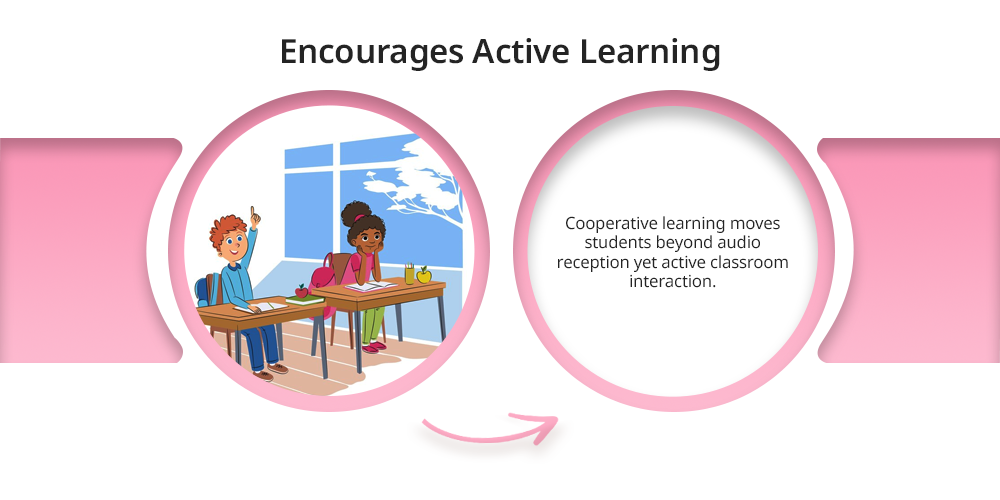
Cooperative learning moves students beyond audio reception yet active classroom interaction.
Students must shift from being passive receivers of information because they now must actively participate in the educational process.
Activity-based learning tasks make students perform research work followed by classroom discussions before presenting their conceptual frameworks creating interactive educational interactions.
The hands-on methodology improves both educational comprehension and boosts student memory retention abilities.
12. Strengthens Peer Relationships
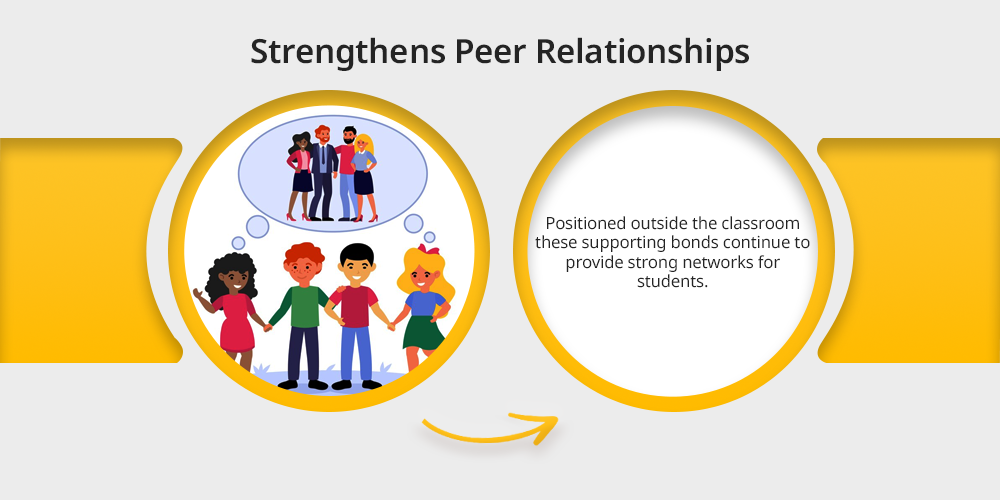
When teaming up for group tasks students build enduring relationships with their classmates. Positioned outside the classroom these supporting bonds continue to provide strong networks for students.
When students have strong bonds with their peers their emotional health improves alongside their academic outcomes.
The presence of supportive friends during learning provides students more pleasurable educational experiences combined with reduced anxiety levels.
13. Increases Long-Term Retention
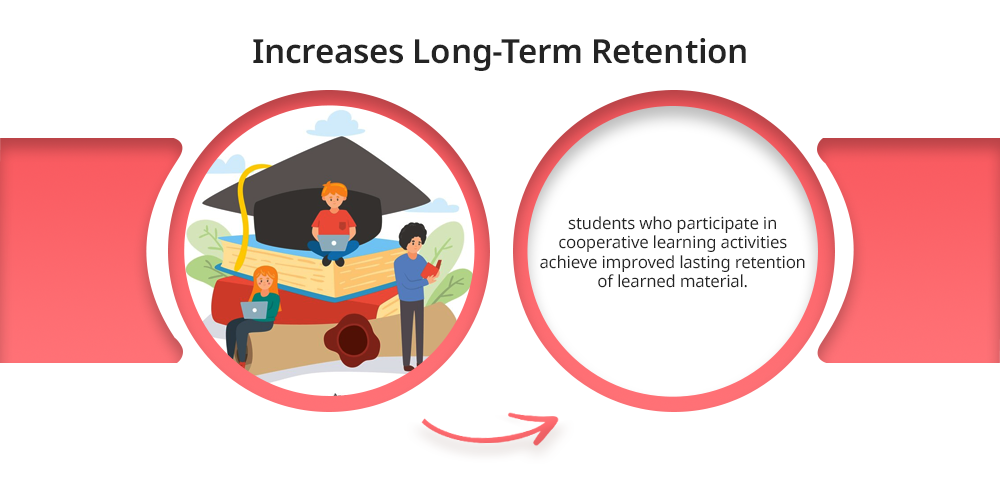
Scientific studies found that students who participate in cooperative learning activities achieve improved lasting retention of learned material.
The practice of helping others master a subject readies their own comprehensibility through active knowledge application until it becomes securely reinforced.
Site-based instruction proves effective in the mastery of difficult content and complex skills because of its demonstrated advantages.
Conclusion
Cooperative learning serves as a powerful educational framework which goes beyond instruction approaches by developing both personal growth and academic progress.
The educational approach of collaboration and critical thinking and inclusive education produces graduates who will succeed both academically and through their various fields of study.
Let us fully accept cooperative learning as a transformative approach to empower students in reaching their maximum scholarly achievements in a collaborative space.

